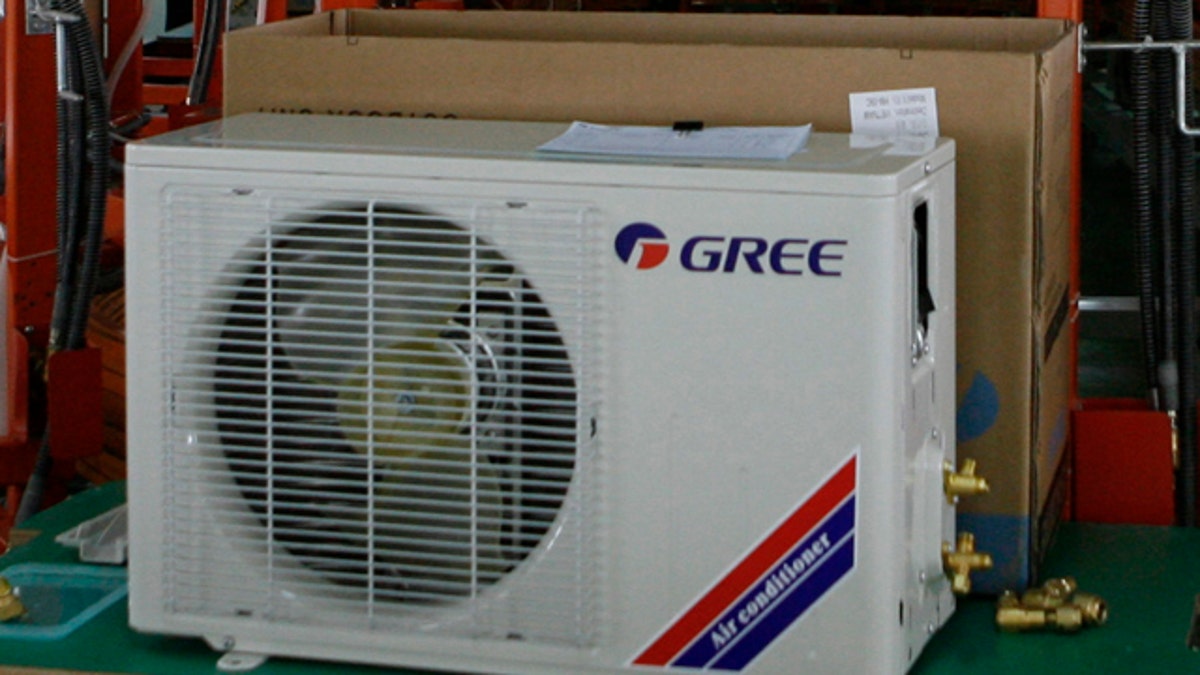
Employees work on the assembly line of the Gree Vietnam air conditioner factory in Vietnam's southern Binh Duong province June 8, 2008. REUTERS/Kham (VIETNAM) (Reuters)
There are ways to beat the summer heat without paying a fortune. Here are some tips for saving money and staying cool.
Ward off vampires
Vampires may be partly to blame for your sky-high summer electric bill. "Vampire power" is the electricity being used by devices like computers, DVRs, videogame consoles and microwaves when they are turned off or not in use. Bankrate.com research found that 5 to 10 percent of all household energy use comes is from vampire power.
Go around your house and unplug appliances that you rarely use. Set your computer to "sleep" or "hibernate" mode so that it uses less power during periods of inactivity. Don't forget to turn off the lights when you leave a room.
Program your thermostat
Your air conditioner will not cool the room faster if you set it to 65 degrees Fahrenheit. According to international energy company National Grid, setting your thermostat to 75 degrees Fahrenheit costs 18 percent more than setting it to 78 degrees. Set your thermostat to coincide with your family's schedule. Make sure it is programmed for energy-saving temperatures when no one is home and at bedtime. Check out these tips for proper programmable thermostat use.
Make smart choices when using appliances
Philadelphia-based Energy Plus suggests switching your refrigerator temperature to somewhere between 38 and 42 degrees Fahrenheit. You should set your freezer between 0 and 5 degrees Fahrenheit. Flip on your fridge's power-save switch if it has one. Also check that the door to the refrigerator seals tightly. If you close a dollar bill between the door gaskets and it is easy to pull out, replace the gaskets. Replace or seal old drafty windows.
Avoid preheating the oven for longer than necessary, and don't open the over door to peek too often, as you are releasing all of that heat into your kitchen. Use cold water in your dishwasher and washing machine. If possible, wait until you have a full load to run either. Dry your dishes by hand or leave your clothes to air dry instead of using the dry cycle or dyer. If possible, put off cooking, bathing or laundry during the peak heat hours.
Don't discount the power of electric fans. They use little electricity, and window fans can help move cool air from outdoors into the house at night and during the morning.
Keep your equipment in good condition
According to the U.S. Environmental Protection Agency and Department of Energy's Energy Star program, dirt and neglect are the leading causes of ineffective cooling systems. Check your air filters every month and change them at least every three months to prevent dirt and dust from building up in your system. If you have central air, inspect the condensate drain. A plugged drain can impact the humidity levels indoors, as well as cause water damage and breed bacteria and mold.
Energy Star also recommends cleaning the indoor and outdoor coils of your cooling system before the weather warms up. A dirty coil decreases the efficiency of the system, causing it to run longer and use up more energy. Ensure proper airflow over the indoor coil by cleaning and adjusting the blower components. You should also make sure moving parts of the equipment are well-lubricated to prevent electricity-sucking friction in motors.
It may also help to conduct an energy audit to find problem areas in your house to help you save more money in the long run.